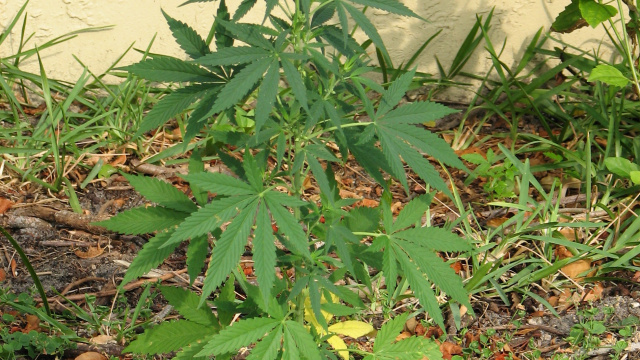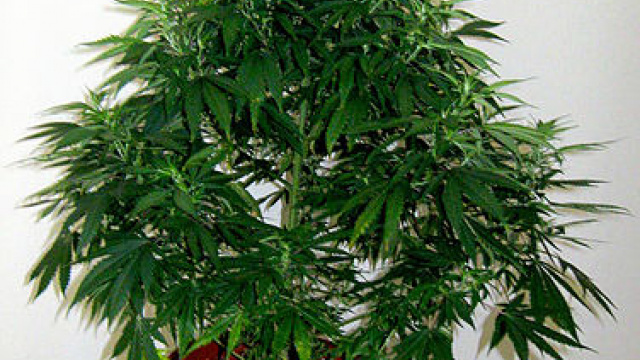 Recently, the Huffington Post ran an article stating that according to more than 300 economists, the U.S. government could potentially save $13.7 billion dollars by not enforcing the prohibition and taxing it like tobacco and alcohol.
Recently, the Huffington Post ran an article stating that according to more than 300 economists, the U.S. government could potentially save $13.7 billion dollars by not enforcing the prohibition and taxing it like tobacco and alcohol.
As someone who has always been pro-legalization, I found this interesting and saw it as a ray of light through the thunderstorm that is this ridiculous marijuana prohibition.
So, if it could potentially save the States billions of dollars, what about Canada?
According to the 2009 Angus Reid poll, 53% of Canadians were in favour of legalizing cannabis.
Obviously, possession, trafficking and growing of marijuana is illegal in Canada.
Simple possession ( anything under 30 grams ) can result in a maximum $1000 fine or six months in jail, and trafficking can result in anything from a slap on the wrist and a fine to jail time.
Drug prohibition in Canada started in 1908 with the Opium Act. It forbade the sale, manufacture and importation of opium for anything other than medical use, and it later expanded to include morphine and cocaine in 1911.
It wasn’t until 1923, when the Opium and Narcotics Act came in, that cannabis was added to Confidential Restricted List.
While it was criminalized in 1923, it didn’t start getting attention until the 1930s, and the first arrest wasn’t made until 1937. Even in the next two or three decades, it was barely a blip on police radar.
Between 1946 and 1966 cannabis only accounted for 2% of drug arrests in Canada.
In 2002, Jean Chretien’s Liberal government introduced a bill that would have decriminalized the possession of small amounts of marijuana. Possession of a half ounce or less would have only resulted in a fine, and those possessing up to a full ounce would be either ticketed or charged. Up to seven plants for personal use would have also become a summary offence, but any more than that would have a more severe punishment.
It looked like the bill might have been able to pass, too, but it died when Parliament prorogued.
Not only that, but the DEA supposedly put a lot of pressure on our government, threatening to slow down border-crossings along the border just in case someone decided to try to smuggle our legal weed into their country. As if that wasn’t happening already.
An identical bill was introduced again in November 2004 by Paul Martin’s Liberals, but it got shot down too.
So should it be illegal?
There are reports of cannabis use for medicinal purposes as far back as 2727 BC in China and apparently even Queen Victoria used cannabis to relieve her menstrual cramps.
In 1937 it is criminalized in the United States, and by 1965 over 1 million Americans had tried it, and that number jumped to 24 million by 1972.
Now, marijuana is America’s number one cash crop, raking in around $36 billion per year.
In 1996, California introduced Proposition 215, making marijuana legal for medicinal use, and since then around 14 other states, and Canada, have followed.
Of course, it’s not as easy as just flipping a switch and legalizing it. There are a few things that would need to be considered: what about the price? The quality?
It makes sense that the illegality of the substance has influence on the price because of the risk factor. If it was legal, would the price go down?
Would the government employ growers that are already in operation? And will the quality increase or decrease if the government gets their hands on it?
Recreational marijuana users and those who need compassionate care services ( medical marijuana – for more information, visit www.medicalmarijuanacure.com ) obviously want it to be legalized, and I would have to say that I agree with them.
Sure, weed is a drug, but so are alcohol and tobacco. People are getting smarter since the “Reefer Madness” days, where everyone was afraid that one toke of weed would turn their poor innocent children into raving homicidal maniacs.
Anyone who has ever ingested the drug knows how false those claims are.
Marijuana is not physiologically addictive like alcohol or cocaine; it can be habit-forming but normally users do not report withdrawal symptoms like those of alcohol or other narcotics.
Also, to those of you that say that if it’s legal, more people will use it, I have this to say: In Holland, where marijuana is legal, it was reported that once it became legal, usage of marijuana and hard drugs dropped significantly.
As it is, there is practically unlimited access to weed whether it’s legal or not, so people are going to get it no matter what.
If it was legalized, the soft drug trade would stop feeding organized crime, stop congesting our prison system with nonviolent offenders and make obtaining the drug safe and risk-free, especially for those looking for compassionate care.
The way I see it, marijuana is just like alcohol. Some people come home and relax on the couch with a beer, and some do it with a joint.
It has even been proven that alcohol does more damage to your body than marijuana does, and there have been no recorded deaths that could be directly attributed to using marijuana.
Besides, I don’t know about you, but I would rather be in a room full of stoned people than a room full of drunk people.
You never hear of a marijuana user getting high and coming home and beating his wife and children; the most damage he is likely to do is to his refrigerator.
So what do you guys think? Should it be legalized, decriminalized, or should the laws stay the way they are?
Source: Fairview Post (CN AB)
Copyright: 2012 Fairview Post
Contact: http://www.fairviewpost.com/feedback1/LetterToEditor.aspx
Website: http://www.fairviewpost.com/
Author: Jacquie Maynard



Leave a Reply